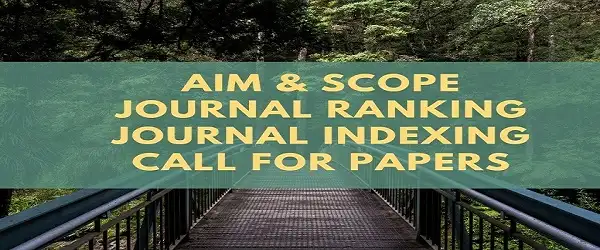Scientific Drilling impact factor, indexing, ranking (2024)

Aim and Scope
The Scientific Drilling is a research journal that publishes research related to Energy; Engineering. This journal is published by the IODP-MI. The ISSN of this journal is 18163459, 18168957. Based on the Scopus data, the SCImago Journal Rank (SJR) of scientific drilling is 0.604.
Also, please check the following important details about scientific drilling: Publisher, ISSN, Ranking, Indexing, Impact Factor (if applicable), Publication fee (APC), Review Time, and Acceptance Rate.
According to Clarivate's JCR, journals indexed in SCIE/SSCI have an impact factor.
Scientific Drilling Ranking
The Impact Factor of Scientific Drilling is N/A.
The impact factor (IF) is a measure of the frequency with which the average article in a journal has been cited in a particular year. It is used to measure the importance or rank of a journal by calculating the times its articles are cited.
The impact factor was devised by Eugene Garfield, the founder of the Institute for Scientific Information (ISI) in Philadelphia. Impact factors began to be calculated yearly starting from 1975 for journals listed in the Journal Citation Reports (JCR). ISI was acquired by Thomson Scientific & Healthcare in 1992, and became known as Thomson ISI. In 2018, Thomson-Reuters spun off and sold ISI to Onex Corporation and Baring Private Equity Asia. They founded a new corporation, Clarivate, which is now the publisher of the JCR.
Important Metrics
| Journal Title: | Scientific Drilling |
| Publisher: | IODP-MI |
| ISSN: | 18163459, 18168957 |
| Type: | journal |
| Journal Scope: | Energy; Engineering |
| Country: | United States |
| H-Index: | 28 |
| SJR: | 0.604 |
| Quartile: | Energy Engineering and Power Technology (Q2); Mechanical Engineering (Q2) |
scientific drilling Indexing
The scientific drilling is indexed in:
An indexed journal means that the journal has gone through and passed a review process of certain requirements done by a journal indexer.
The Web of Science Core Collection includes the Science Citation Index Expanded (SCIE), Social Sciences Citation Index (SSCI), Arts & Humanities Citation Index (AHCI), and Emerging Sources Citation Index (ESCI).
Note: ESCI journals donot come with an impact factor. However, ESCI journals are evaluated every year and those who qualified are transferred to SCIE.
Scientific Drilling Impact Factor 2024
The latest impact factor of scientific drilling is N/A.
The impact factor (IF) is a measure of the frequency with which the average article in a journal has been cited in a particular year. It is used to measure the importance or rank of a journal by calculating the times it's articles are cited.
Note: Every year, The Clarivate releases the Journal Citation Report (JCR). The JCR provides information about academic journals including impact factor. The latest JCR was released in June, 2023. The JCR 2024 will be released in the June 2024.
Scientific Drilling Quartile
The latest Quartile of scientific drilling is Q2.
Each subject category of journals is divided into four quartiles: Q1, Q2, Q3, Q4. Q1 is occupied by the top 25% of journals in the list; Q2 is occupied by journals in the 25 to 50% group; Q3 is occupied by journals in the 50 to 75% group and Q4 is occupied by journals in the 75 to 100% group.
Publication fee
Based on the Official Journal Homepage, the scientific drilling does not charge any publication fee.
An article processing charge (APC), also known as a publication fee, is a fee which is sometimes charged to authors. Most commonly, it is involved in making a work available as open access (OA), in either a full OA journal or in a hybrid journal.
Call for Papers
Visit to the official website of the journal/ conference to check the details about call for papers.
How to publish in Scientific Drilling?
If your research is related to Energy; Engineering, then visit the official website of scientific drilling and send your manuscript.
Tips for publishing in Scientific Drilling:
- Selection of research problem.
- Presenting a solution.
- Designing the paper.
- Make your manuscript publication worthy.
- Write an effective results section.
- Mind your references.
Acceptance Rate
Acceptance rate is the ratio of the number of articles submitted to the number of articles published. Researchers can check the acceptance rate on the journal website. Alternatively, they can contact the editor of the journal.Journal Publication Time
The Journal Publication Time means the average number of weeks between article submission and publication. According to the journal website, the scientific drilling publishes research articles in 27 weeks on an average.
Final Summary
- The impact factor of scientific drilling is N/A.
- The scientific drilling is a reputed research journal.
- It is published by IODP-MI.
- The journal is indexed in UGC CARE, Scopus, ESCI, DOAJ.
- It is an open access journal.
- The (SJR) SCImago Journal Rank is 0.604.
- The publication time (Average number of weeks between article submission and publication) of the journal is 27 weeks.
- Based on the Official Journal Homepage, the scientific drilling does not charge any publication fee.
Sources: http://www.scientific-drilling.net/
SIMILIAR JOURNALS
ISSN: 0010-2180
Publisher: ELSEVIER SCIENCE INC
APPLICATIONS IN ENERGY AND COMBUSTION SCIENCE
ISSN: 2666-352XPublisher: ELSEVIER
JOURNAL OF PIPELINE SCIENCE AND ENGINEERING
ISSN:Publisher: KEAI PUBLISHING LTD
ISSN: 2405-6561
Publisher: KEAI PUBLISHING LTD
PROCESS INTEGRATION AND OPTIMIZATION FOR SUSTAINABILITY
ISSN: 2509-4238Publisher: SPRINGERNATURE
CHEMISTRY AND TECHNOLOGY OF FUELS AND OILS
ISSN: 0009-3092Publisher: SPRINGER
CHINA PETROLEUM PROCESSING & PETROCHEMICAL TECHNOLOGY
ISSN: 1008-6234Publisher: CHINA PETROLEUM PROCESSING & PETROCHEMICAL TECHNOLOGY PRESS
COMBUSTION EXPLOSION AND SHOCK WAVES
ISSN: 0010-5082Publisher: MAIK NAUKA/INTERPERIODICA/SPRINGER
COMBUSTION SCIENCE AND TECHNOLOGY
ISSN: 0010-2202Publisher: TAYLOR & FRANCIS INC
INTERNATIONAL JOURNAL OF GREENHOUSE GAS CONTROL
ISSN: 1750-5836Publisher: ELSEVIER SCI LTD
TOP RESEARCH JOURNALS
- Agricultural & Biological Sciences
- Arts & Humanities
- Business, Management and Accounting
- Chemistry
- Computer Science
- Education
- Engineering
- Mathematics
- Medicine
- Physics
- Social Sciences